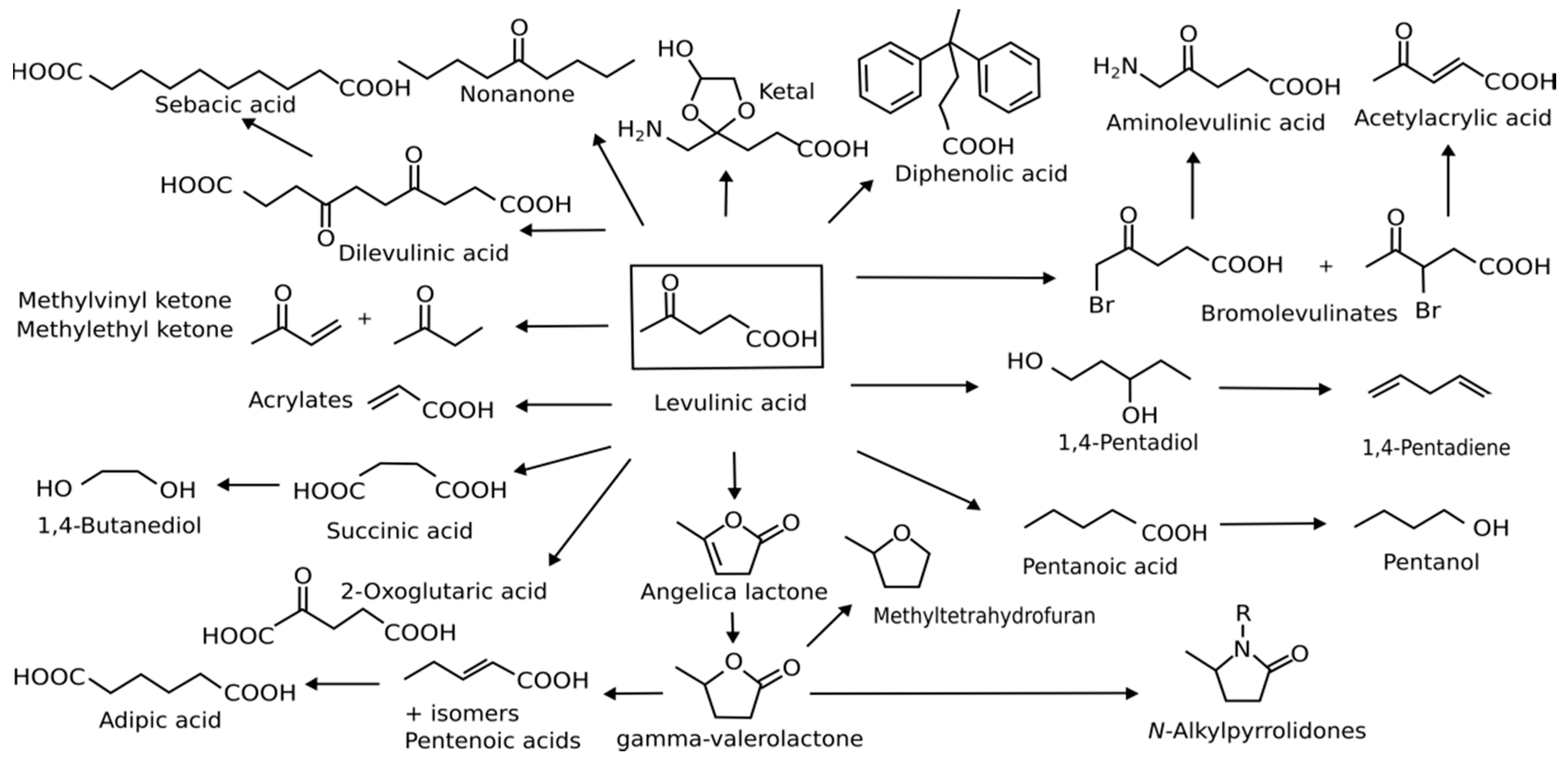

Levulinic acid (also known as 4-oxo pentanoic acid or γ-keto valeric acid) is an organic compound with the chemical formula C5H8O3. It is a white crystalline solid soluble in water and polar organic solvents. It contains ketone and a carboxylic group whose presence results in interesting reactivity patterns. It is one of the more recognized Biobased Chemical Building Blocks, a starting material for a wide number of compounds. In fact, it was recognized by the US DoE as one of the top biobased platform chemicals of the future and it can successfully address many performance-related issues attributed to petroleum-based chemicals and materials.
Levulinic acid can serve as an incredibly versatile building block for chemicals and materials derived directly from biomass. It is used as a precursor for:

Fuel additives: Levulinate esters are additives for gasoline and diesel transportation fuels. For instance, they can replace current cetane improvers and cold-flow performers for diesel. They may also replace lubricity improvers. Methyltetrahydrofuran (MeTHF), a levulinic acid derivative, can also be blended up to 50% with gasoline to increase vehicle performance and reduce air emissions.
Solvents: Levulinic acid esters, gammavalerolactone (GVL) and MeTHF are suitable solvents for a number of applications. GVL can replace ethyl acetate and MeTHF can be used as a substitute for tetrahydrofuran (THF) in the fine chemical and pharmaceutical industry.
Polymers and plasticizers: Levulinic acid-derived ketal esters can replace major phthalate-based plasticizers. Methyl butanediol (MeBDO) has the potential as a monomer for polyurethanes. GVL can be a monomer for polyester polymers and starting materials for pyrrolidinone-isomers.
Resins and coatings: Levulinic acid can be used in polyester resins and polyester polyols to increase scratch resistance for interior and exterior coatings. Its derivative Diphenolic Acid (DPA) is used in protective and decorative finishes.
Agro-chemicals: Its derivative delta-aminolevulinic acid (DALA) is used as an herbicide on lawns and certain grain crops.
Pharmaceuticals: Levulinic acid is used in anti-inflammatory medication, anti-allergy agents, mineral supplements and transdermal patches. DALA is used for the diagnosis and treatment of cancer.
Personal care: Levulinic acid and its derivatives are used in organic and natural cosmetic compositions for antimicrobial, perfuming, skin conditioning and pH-regulating purposes.
Flavors and fragrances: Levulinic acid esters are often used as niche fruity flavor and fragrance ingredients.
